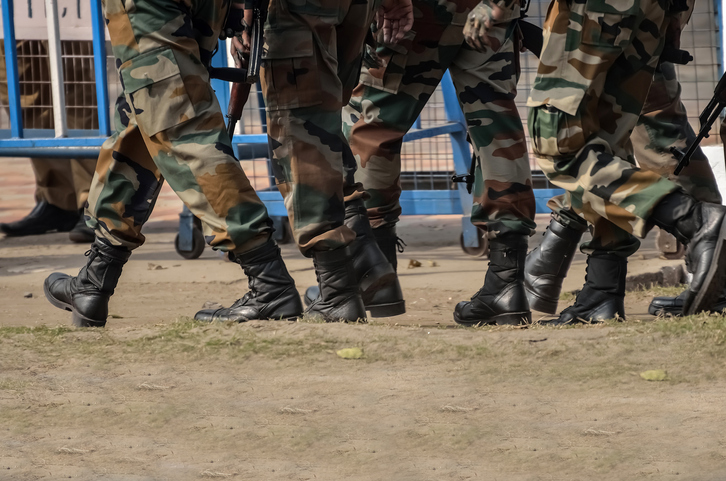
Photo for representation only. Source: iStock.
Vijay Mohan
Tribune News Service
Chandigarh, April 6
With over 16 per cent of Territorial Army (TA) officers at present being in the low medical category (LMC), the Armed forces Tribunal has observed that having unfit officers would deprive the country of benefits of having a physically and mentally fit and robust officer leadership for units employed in the security of the nation, with direct consequences for the entire country.
“The organisation has authorised a total of 503 TA officers of which 396 are posted. Of these, 65 officers are LMC,” the tribunal’s bench comprising Justice Rajendra Menon and Lt Gen PM Hariz observed while vacating the stay imposed earlier on the disembodiment of several officers because of poor physical fitness.
In addition to TA officers, the organisation is also authorised 172 officers from the regular army.
One of the major challenges faced by the TA Directorate was the management of increasing LMC personnel in TA units.
Keeping in view the overall security environment prevailing since May 2020, the TA Directorate at Army Headquarters commenced improving the operational fitness of its units and sub-units, according to the Tribunals orders issued on April 5.
Accordingly, in the cases of junior commissioned officers and other ranks, that personnel unsuitable due to their medical condition were disembodied and discharged from service.
In the case of officers, the TA Directorate issued instructions to units to initiate cases for LMC officers to be placed on Special Unattached List (SUL).
Instructions were also issued to the officers concerned to get themselves medically upgraded where possible during the period in which they are on SUL, failing which case for their termination of service from TA would be initiated.
Officers could seek embodiment once they were declared medically fit by the competent authority.
Some of the officers aggrieved by this move moved the Tribunal, challenging their placement on the SUL.
They averred that they did not meet the criteria for being placed on the SUL, there were no adverse comments by superior officers on their demonstrated performance and no show cause notice was served to them.
The Army contended that the concept of TA encompassed the employment of physically and medically fit gainfully employed civilians to support, supplement and augment the resources of the regular army in times of need.
Unlike the regular army, TA does not provide a full-time career and apart from mandatory training, additional embodiment was subject to organisational requirements or specific tasks. Further, the policy for the management of LMC cases in the TA was different from that of the regular army.
Pointing out that of late there has been an increase in LMC officers in the TA the army claimed that it was seen that many were not keen to get upgraded to take benefit of disability pension on retirement.
This attitude defeated the very concept of TA and such officers not only failed to maintain their fitness but owing to such disabilities posed a threat to the mission of their unit and the men under their command.
The Tribunal’s bench observed that considering the overall security and operational environment in the country and the continued employment of TA in active operational areas, it was vital for the organisation to institute such measures to ensure the operational effectiveness and capabilities of its units and subunits.
Stressing that it was implicit and axiomatic that the TA took necessary measures to ensure fitness standards in the leadership provided by TA officers, the bench remarked that having LMC officers with various medical disabilities and employment restrictions not only affected the successful execution of the mission of TA units but also directly impacted the life and sustenance of the men these officers lead.
At present, about 85 per cent of TA infantry units and sub-units are embodied and deployed in an operational role.
Several other issues relating to the concept of TA and present rules and regulations governing the TA raised by the petitioners would be heard by the Tribunal in due course.
Join Whatsapp Channel of The Tribune for latest updates.



























